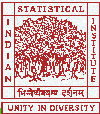 |
Econ 277A Economic Development I: Development Microeconomics | |
|
|
Course Outline Course Summary In this course we outline and try to understand the variety of market imperfections pervasive in the developing world and the nature and effectiveness of informal institutions that arise to fill the resulting gaps. The distinctive institutional characteristics of the informal economy in developing countries extensively documented by empirical economists, sociologists and anthropologists are typically difficult to explain within the traditional neoclassical theory of a complete set of Arrow-Debreu markets. Accordingly many traditional scholars have inferred the irrelevance of neoclassical economics to the context of developing countries, and the need for alternative paradigms. Drawing on advances in game theory and the economics of information, in this course we introduce a systematic way of providing a cogent explanation of many of these institutional characteristics within the context of an analytical framework grounded on the same methodology as the traditional approach. Examinations There will be two exams -- one Mid-term and the Final exam. The exams will be held during the Mid-term week (28 February - 4 March) and the Final exam period (25 April - 6 May) respectively. Presentation Each student has to present one paper from the course reading materials listed below. The class presentation must include a critical evaluation of the paper and relate the paper with the relevant literature. Grading Policy Your grade in this course will be based on the presentation, the Mid-term, and the Final exam. The breakdown is as follows: presentation: 20%, Mid-term: 40%, Final exam: 40%. Last Updated on 15 January 2011.
|